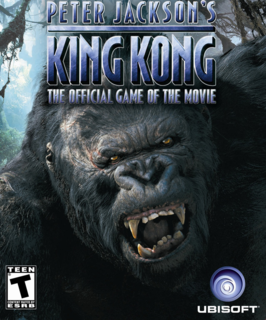The Meaning of the Word *Cinematic*
For some reason, games usually fail in conducting the player through the roller-coaster ride of emotions typically associated summer blockbuster movies. Mostly, I think, because designers still aren't able to strategically define each set-piece's rhythm, leading the player from moments of calm, anticipation and suspense, into adrenaline fueled climaxes. This is a consequence of gameplay oriented design, that focuses too much on the player interaction (and the "Fun" factor that ensues), instead of a much broader notion of experience, that takes gameplay into account, but complements it with audiovisual stimuli, which add depth to the emotional response of the player. In my view, that is why movie-game adaptations fail: they get the basic notion of the movie, translate it into gameplay mechanisms, create an interface according to the conceptual artwork, and glue it all together with some shabby cutsenes or promotional movie clips; in the process, the movie's emotional impact is lost, and with it all of its artistic expression. But not in "King Kong".
The game's unfolding follows with scrutiny Peter Jackson's movie, from the moment the filming crew lands on "Skull Island", a hidden paradise where pre-historic fauna and flora still exist. The player takes Jack's perspective, using first person POV, as he explores "Skull Island" in all its splendors and dangers; and King Kong's, in action adventure portions, as he tries to save Ann from the Island perils.
In terms of Jack's part, instead of taking the predictable road of allowing the player to shoot everything on sight that moves, as in the traditional FPS genre, the game prompts the player to explore and use his environment to survive the attacks of centipedes, demon adoring natives, and, of course, famished dinosaurs (including a family of Colgate smiling T-Rexes). Survive. As in survival horror. You'll run, duck, hide, throw spears and bones, and even use the environment to aid you, all so that you can survive. Sure, there are some action portions where you have access to real weapons, but even then, the game casts you in a position of inferiority towards your enemies, never alowing you to feel comfort or power as you do in a shooter. For instance, when you face the T-Rexes, though you have a bucket load of machine gun ammo, it causes no impact on the large critters, except for the fact that it reminds them that you'd make a great snack. The result is the aforementioned roller coaster ride, a journey through hell, with all its ups and downs, where all you can do is run and hope for the best. In that sense, the game fully embodies its movie counterpart expression.
Kong's side of the story is not as well thought off, even if it's explored in a genre all too familiar to Ancel. The first Kong levels are unusually cinematic, with great camera-work and fast pacing serving platforming based chasing sequences (a la "Prince of Persia"), as Kong tries to catch up with Ann. Unfortunately, from there on out, these sequences degenerate into mindless button mashing feasts, as Kong has to get rid of those T-Rexes, in classical beat'em up style. These sequences become all the worse as the game approaches its "Empire State Building Finale", with the superficial battle system completely worn out by then, and some crazy camera view points that become too cumbersome. Kong's scenes feel, above all, as a compromise with hard-core gamers that need a steady fix of action packed sequences in order to maintain interest in a game, and in the end, they do little to add value to the movie's translation. Perhaps if the levels were better designed, they would've made sense as a complement to Jack's adventure, but that just isn't the case here.
Ar least, it's all done with style and grace, achieving a perfect depiction of the environments present in the movie, using gorgeous lighting schemes, beautiful multi-layer background compositions, and a total absence of HUD/menu induced noise, just pure visual magic. Add the use of Newton Howard's composition (that set the tone for the scenes in the game as they did in the movie), and voice acting by the movie's cast (filled with precious details like Adrien Brody's gasps when the player runs too much, or Jack Black's silly comments on how "Amazing" Skull Island is), and you've got the perfect audio-visual translation of a movie into a game.
"King Kong" delivers where everyone else has failed, in a wonderful translation of a movie into a game that actually works in its context, and not by merely serving as an appendix, but as a full out audiovisual interactive experience. It isn't perfect: Kong's episodes break an otherwise smooth pacing, and some elements repeat themselves too much, but even so, the game manages to propel the player into discovering a wealth of emotions undeveloped in games. Of course, this is blockbuster territory, so don't expect life changing experiences, just an adventure filled with danger and excitement, a fun-fair ride into the heart of "King Kong's" domain. If only all movie adaptations where this good…

